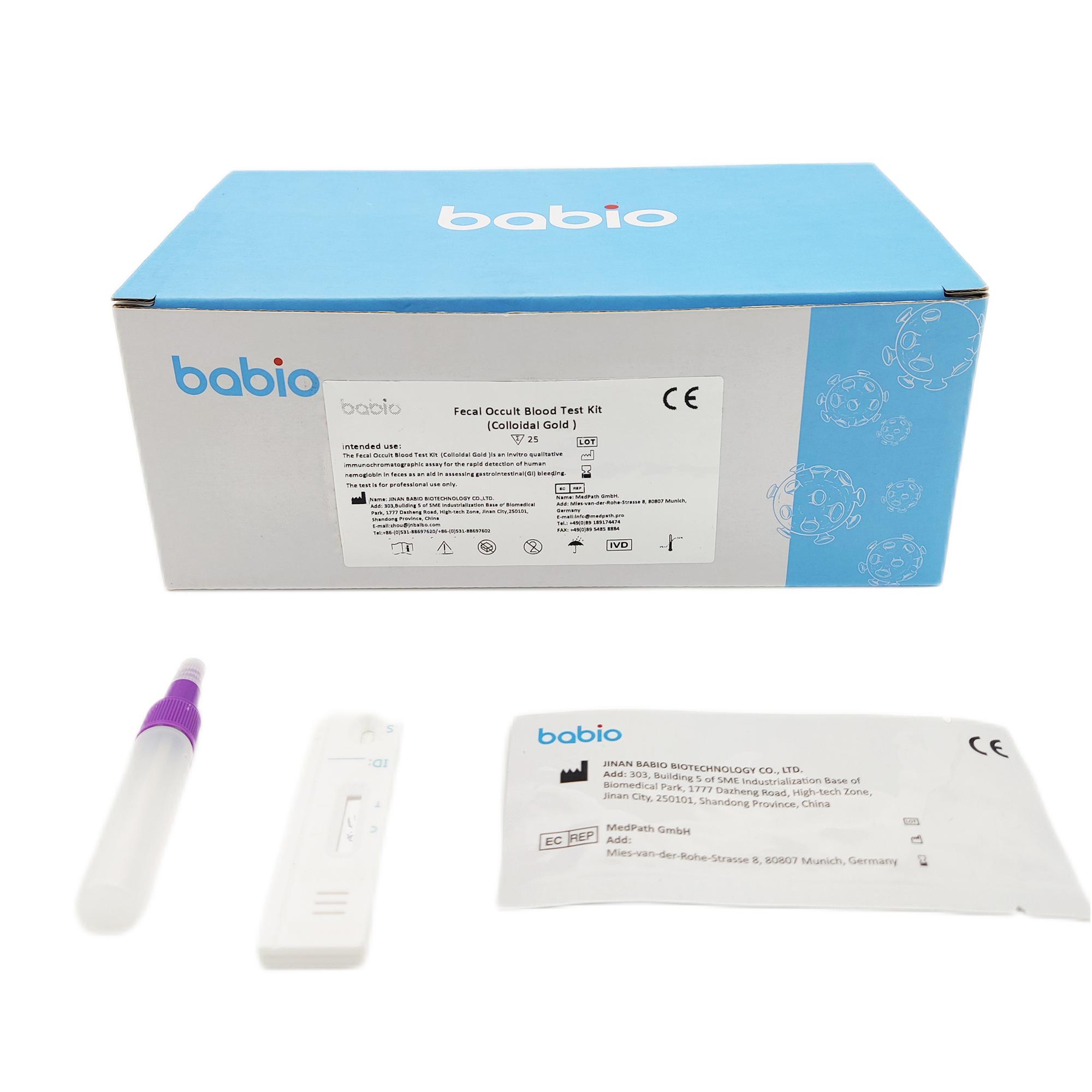Here's an overview of tumor marker test kits
2024-03-25
Tumor marker test kits are diagnostic tools used to detect specific substances (biomarkers) in the blood, urine, or tissue samples of patients suspected of having cancer. These tests help in the early detection, diagnosis, and monitoring of cancer by measuring the levels of certain proteins, hormones, enzymes, or genetic markers associated with the presence of tumors or their response to treatment. Here's an overview of tumor marker test kits:
1. Types of Tumor Markers: Tumor markers are substances produced by cancer cells or by the body's response to cancer. Different types of tumor markers are associated with specific types of cancer. Some common tumor markers include:
- Prostate-specific antigen (PSA): Associated with prostate cancer.
- Carcinoembryonic antigen (CEA): Associated with colorectal, pancreatic, lung, breast, and other cancers.
- CA 125: Associated with ovarian cancer.
- CA 15-3 and CA 27.29: Associated with breast cancer.
- Alpha-fetoprotein (AFP): Associated with liver and germ cell tumors.
- Human chorionic gonadotropin (hCG): Associated with germ cell tumors and certain types of cancer.
- CA 19-9: Associated with pancreatic and gastrointestinal cancers.
- Thyroglobulin: Associated with thyroid cancer.
- HER2/neu: Associated with breast and ovarian cancers.
2. Principle of Operation: Tumor marker test kits use various techniques to detect and measure the levels of tumor markers in patient samples. These techniques may include enzyme-linked immunosorbent assay (ELISA), chemiluminescent immunoassay (CLIA), radioimmunoassay (RIA), polymerase chain reaction (PCR), or other molecular methods.
3. Sample Collection: Samples for tumor marker testing may include blood, urine, cerebrospinal fluid, or tissue biopsy specimens, depending on the specific tumor marker and type of cancer being evaluated. Blood is the most commonly used sample type for tumor marker testing.
4. Ease of Use: Tumor marker test kits are designed for ease of use and can be performed in clinical laboratories or point-of-care settings. The kits typically include all necessary reagents, controls, and instructions for performing the test.
5. Interpretation of Results: Test results are interpreted based on the concentration of the tumor marker detected in the patient sample. Elevated levels of tumor markers may indicate the presence of cancer, but they are not definitive diagnostic evidence on their own. Further diagnostic tests, such as imaging studies (e.g., CT scan, MRI) or tissue biopsy, may be needed to confirm the diagnosis.
6. Clinical Applications: Tumor marker tests are used for various clinical purposes, including:
- Screening and early detection of cancer in asymptomatic individuals at increased risk.
- Diagnosis and staging of cancer.
- Monitoring disease progression and response to treatment.
- Detection of cancer recurrence.
7. Limitations: Tumor marker tests have limitations, including:
- Lack of specificity: Elevated tumor marker levels may be caused by conditions other than cancer, leading to false-positive results.
- Lack of sensitivity: Some tumor markers may not be elevated in all cases of cancer, leading to false-negative results.
- Variability: Tumor marker levels may fluctuate over time and may be influenced by factors such as age, sex, medications, and other medical conditions.
8. Regulatory Approval: Tumor marker test kits should meet regulatory standards for diagnostic accuracy, safety, and quality control. Regulatory approval or clearance from relevant authorities is required before these kits can be marketed and used in clinical practice.
In summary, tumor marker test kits are valuable diagnostic tools for the detection, diagnosis, and monitoring of cancer. They provide valuable information that helps healthcare providers in the management of cancer patients, although they are not definitive diagnostic tests on their own and should be interpreted in conjunction with other clinical and diagnostic findings.



